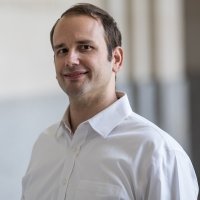The United States, the Soviet Union, and the Nuclear Non-Proliferation Treaty, 1966-1968
The Nuclear Non-Proliferation Treaty (NPT) was, to quote President Johnson’s national security adviser, Walt Rostow, “a constitutional arrangement for the organization of the noncommunist world.” While its negotiations reopened lines of communication between the superpowers that had been closed since Nuremberg, Moscow mostly played a supporting role. Its cooperation, though necessary, was insufficient for the treaty’s success. The NPT depended as well on an unlikely marriage between America’s Cold War alliances in Western Europe and East Asia and collective security arrangements under the UN in those regions having recently undergone decolonization. Dr. Hunt discussed the nuances of the NPT’s negotiation and its significance for contemporary crises.
Speaker

Visiting scholar at the University of Southampton; assistant professor of strategy at the U.S. Air War College
Hosted By

Kennan Institute
After more than 50 years as a vital part of the Wilson Center legacy, the Kennan Institute has become an independent think tank. You can find the current website for the Kennan Institute at kennaninstitute.org. Please look for future announcements about partnership activities between the Wilson Center and the Kennan Institute at Wilson Center Press Room. The Kennan Institute is the premier US center for advanced research on Eurasia and the oldest and largest regional program at the Woodrow Wilson International Center for Scholars. The Kennan Institute is committed to improving American understanding of Russia, Ukraine, Central Asia, the South Caucasus, and the surrounding region through research and exchange. Read more


History and Public Policy Program
A leader in making key foreign policy records accessible and fostering informed scholarship, analysis, and discussion on international affairs, past and present. Read more


Nuclear Proliferation International History Project
The Nuclear Proliferation International History Project is a global network of individuals and institutions engaged in the study of international nuclear history through archival documents, oral history interviews, and other empirical sources. Read more
